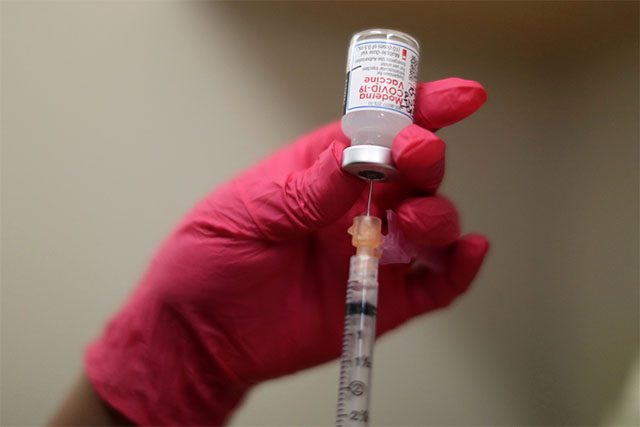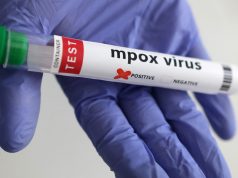
The private sector is allowed to procure COVID-19 vaccines but they have to abide by the conditions set by the national government.
The Department of Health and the National Task Force against COVID-19 issued this clarification after some business owners aired their confusion over the policies and agreement on social media.
In their joint statement, the two agencies pointed out that private entities have to enter into tripartite agreements first.
“The Department of Health and the National Task Force against COVID-19 jointly clarify that private sector companies are allowed to procure vaccines, provided that they enter into tripartite agreements with the Philippine National Government and the vaccine manufacturers,” they said.
“Pursuant to RA 11525 or the ‘COVID-19 Vaccination Program Act of 2021’, recently passed by the Senate and lower house, private companies and Local Government Units are authorized to procure COVID-19 vaccines which have been given Emergency Use Authorization (EUA) by the Food and Drug Administration, in cooperation with the DOH and the NTF through a tripartite agreement,” they added.
They cited three reasons why they warrant such agreements:
- Manufacturers require that indemnification be covered by the national government before finalizing any procurement deals;
- National government claims to shoulder adverse effects;
- Available vaccines are only provided EUA, thus the vials cannot be sold commercially.
This was also stated in section 5 of the measure, wherein:
“Private entities may procure COVID-19 vaccines only in cooperation with the DOH and the NTF through a multiparty agreement, which shall include the DOH and the relevant supplier of COVID-19 vaccine. Any such vaccines, supplies or services procured by private entities shall be for the sole and exclusive use of such companies, without prejudice to the multiparty agreement.”
The DOH also stressed the need for the tripartite agreement on its website.
Can the private sector directly purchase the vaccines from pharmaceuticals or manufacturers for their employees?
“No. Like LGUs, a tripartite agreement involving the National Government, the pharmaceutical company, and the private company is necessary for the procurement of vaccines by the private sector,” the DOH said.
“An Emergency Use Authorization is not equivalent to a marketing authorization or a Certificate of Product Registration. Hence, COVID-19 vaccines are not to be treated as commercial products even if issued with EUA,” it added.
Confusion over vaccine procurement
Coulorette Chief Executive Officer Nina Dizon, who is also vocal about her political views online, asked her followers last Saturday, if it is true that the private sector has to donate half of its purchased vaccines to the government.
“So we’ve been planning to vaccinate all our employees and we came upon the news na you have to donate 50% of your purchased vaccines to the government. How true is this?” Dizon wrote.
Some Filipinos in the comments section’s section shared that their employers also received the same information.
“Our head office in Germany would like to send vaccines to our employees, but the government would like them to double the vaccines to ship here as ‘donation’ daw,” one user wrote.
This concern also reached Reddit Philippines where some users echoed a similar situation.
“My company is one of the top banks in the Philippines and we are mandated to pay for two vaccines and get one for the price of two. It is a big dismay to pay big taxes that don’t seem to go anywhere but fill their pockets…it gets very discouraging at times,” the user wrote.
Sen. Panfilo Lacson, however, denied that there’s a 50% donation requirement for private businesses.
Without dropping names, Lacson described the person spreading such information as “a fake or sick in the mind.”
“Private sector volunteered to donate to help in the country’s vaccination program. That is the fact,” he said.
In response to a Twitter user, the senator added that the “voluntary act” became a mandatory “agreement” between parties.
“That is a fact and we in the senate have consistently questioned why the national government has insisted to handle all vaccine procurements. The 50% donation is a voluntary act by the private sector and is now part of the agreement between the two parties,” Lacson said.
“I happen to personally know of the arrangement between the private sector and the national government. It was the former who volunteered to donate 50% of their procurement. Still DOH-IATF insists to control the procurement which I myself questioned during our senate hearings,” he claimed.
A January 15 report of the Manila Bulletin said that “under the tripartite agreement signed by the national government, the private sector and UK-based pharmaceutical company Astrazeneca in November last year, half of the vaccine supply must be donated to the government for the inoculation of indigent Filipinos while the other half will be distributed among the private sector.”
Presidential Adviser for Entrepreneurship and Go Negosyo founder Joey Concepcion also recently announced that the private sector has unanimously agreed that Zuellig will be their partner in rolling out their procured AstraZeneca vaccines.
“The private sector is willing to pay for everything. In our town hall meeting last Thursday with the AstraZeneca donors, all companies agreed to fund and pay for the logistics cost of the vaccine roll-out,” he was quoted as saying by a Philippine Star report.









